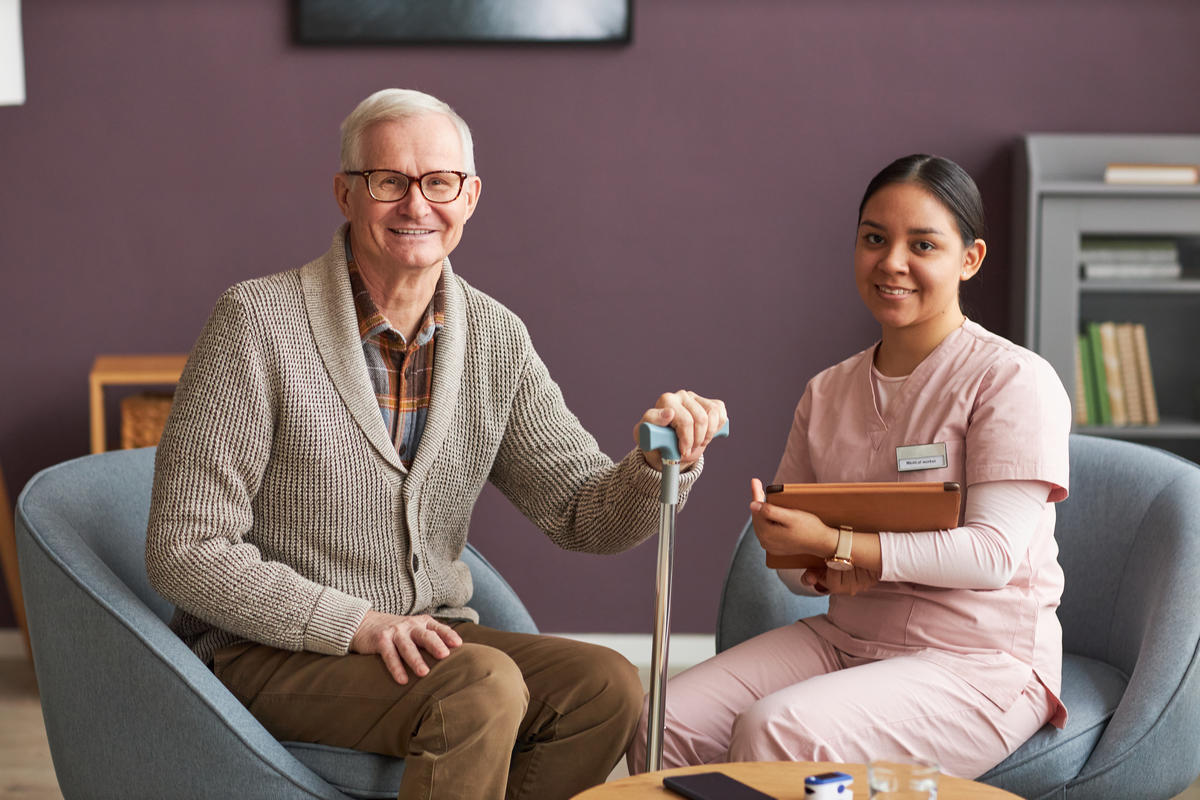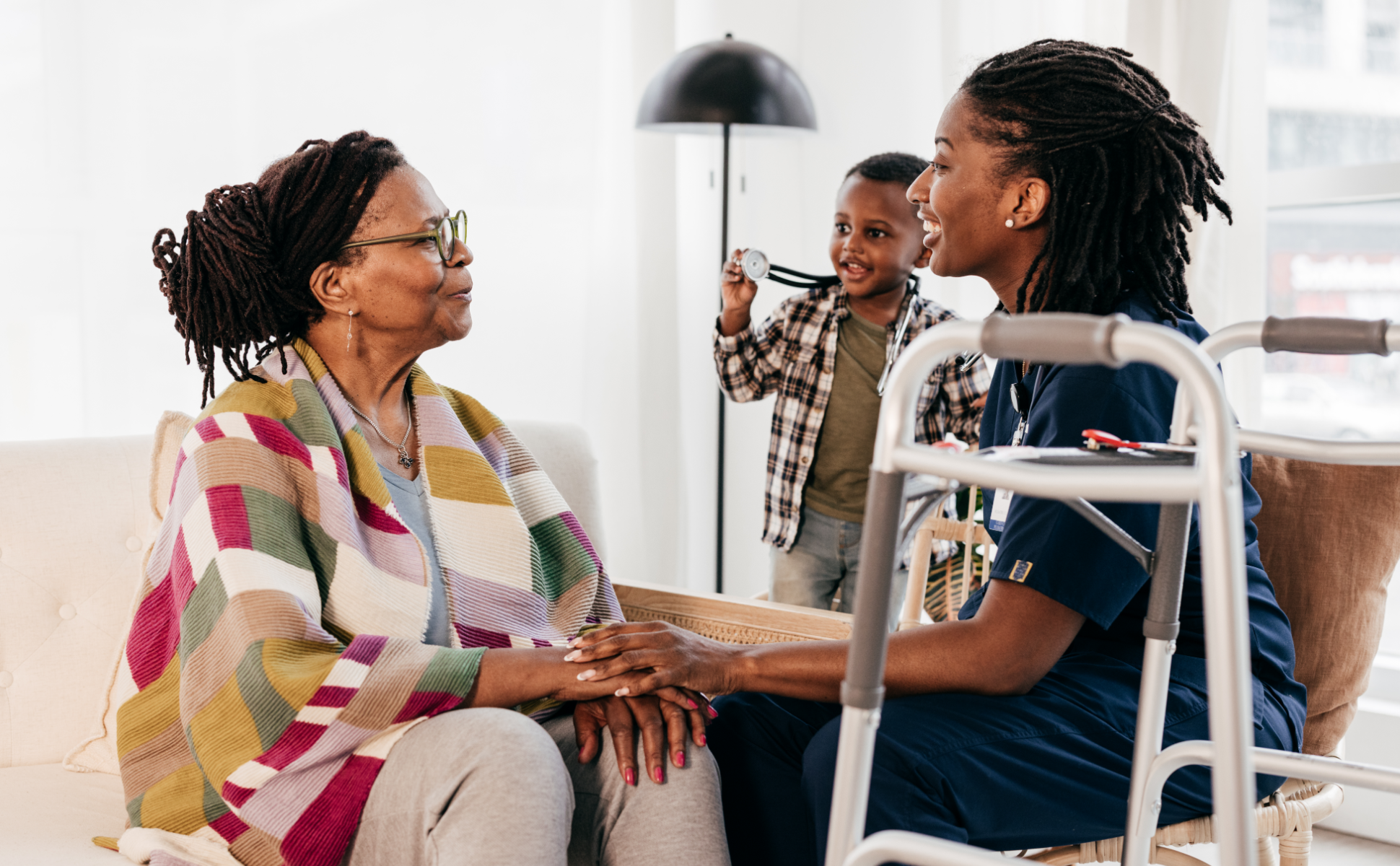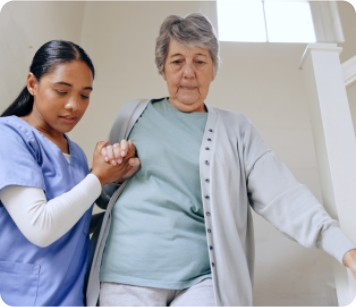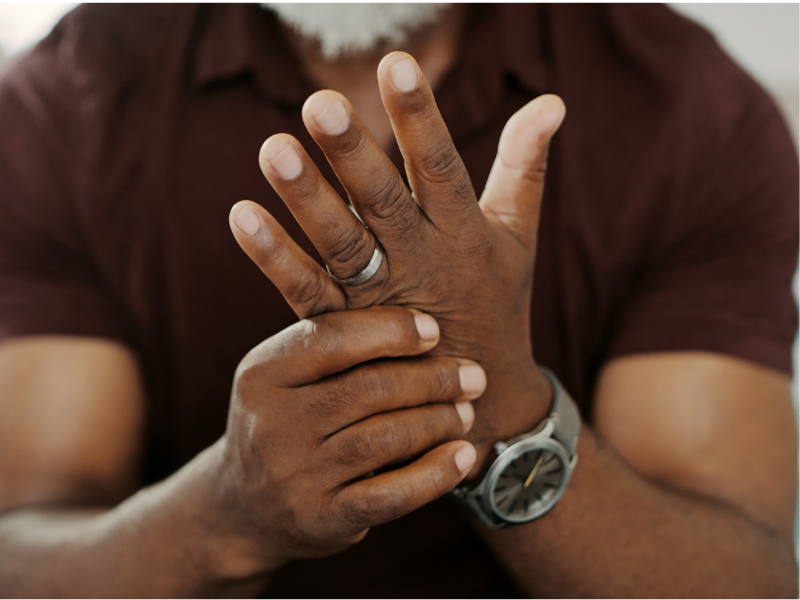As your loved one gets older, they may need additional care. At this point, many families will have to decide between a nursing home and assisted living facility. An AARP study shows that most seniors prefer to age in place. However, some conditions may require a nursing home community. So, what’s right for YOU? Let’s find out! This article will examine the pros and cons of nursing care and assisted living in Philadelphia, PA.
What are the Benefits of Assisted Living in Philadelphia, PA?
Assisted living in Philadelphia, like in many other places, offers several benefits for seniors seeking a supportive and enriching living environment:
- Professional Care and Assistance:
Trained staff is available around the clock to assist with daily activities, medication management, and healthcare needs.
Assisted living facilities are designed with safety in mind, including features like emergency call systems, secure entrances, and staff monitoring.
- Socialization Opportunities:
Residents have ample chances to engage in social activities, fostering companionship and reducing feelings of isolation.
Regular, balanced meals are typically provided, accommodating dietary needs and preferences.
- Housekeeping and Maintenance:
Many assisted living facilities handle housekeeping and maintenance tasks, allowing residents to focus on enjoying their time.
Facilities often offer transportation for medical appointments, shopping, and other outings.
- Structured Activities and Programs:
Assisted living communities organize various activities, classes, and events to keep residents mentally and physically active.
Tailored care plans are developed for each resident, ensuring that individual needs are met and preferences are considered.
- Respite for Family Caregivers:
Assisted living can provide relief for family members who may have been acting as primary caregivers, offering them peace of mind.
- Access to Medical Services:
Many assisted living facilities have partnerships with healthcare providers, making it easier for residents to access medical services on-site.
Philadelphia boasts a rich history and diverse culture, providing a vibrant backdrop for assisted living residents to explore and enjoy.
- Fitness and Wellness Programs:
Regular exercise and wellness activities are often incorporated into daily schedules to promote a healthy and active lifestyle.
For those with memory-related conditions, some facilities offer specialized memory care programs with staff trained in dementia care.
- Independence with Support:
Assisted living strives to promote independence by providing support where needed, allowing residents to maintain a sense of control over their lives.
- Cultural and Recreational Opportunities:
Philadelphia’s cultural richness offers residents opportunities to attend concerts, museums, and other events that contribute to a fulfilling lifestyle.
Many assisted living facilities are pet-friendly, recognizing the positive impact of animal companionship on well-being.
Assisted living options often come with various pricing structures, allowing residents to choose a plan that fits their budget.
- Peace of Mind for Families:
Families can feel reassured knowing that their loved ones are in a secure and supportive environment, receiving the care they need.

The Downsides of Assisted Living in Philadelphia
While assisted living offers numerous obvious benefits, it’s crucial to consider potential downsides as well. The challenges can vary based on individual preferences and needs, but here are some common considerations:
Assisted living can be expensive, and not all individuals may have the financial means to cover the associated fees.
Some seniors may perceive the move to assisted living as a loss of independence, as they are no longer solely responsible for their living arrangements.
Shared living spaces and communal activities can limit personal privacy, which may be a concern for individuals who value a high degree of solitude.
It can take time for seniors to adjust to a new living environment, and the process may be emotionally challenging.
- Healthcare Services Limitations:
While assisted living facilities provide certain healthcare services, they may not be equipped to handle complex medical needs, and residents might need to transition to a higher level of care if their health declines significantly.
Staffing levels can vary, and in some cases, there may be limitations on the number of caregivers available, potentially impacting the level of attention each resident receives.
- Potential for Social Isolation:
While assisted living facilities aim to foster socialization, some residents may still experience feelings of isolation, especially if they struggle to engage in group activities.
- Limited Flexibility in Daily Routine:
The structured nature of assisted living may not suit everyone, as it can limit the flexibility of daily routines compared to living independently.
- Quality Varies Between Facilities:
The quality of assisted living facilities can vary widely, and it’s important for individuals and their families to thoroughly research and visit potential options.
- Distance from Family and Friends:
Moving to an assisted living facility may mean being farther away from family and friends, which can be emotionally challenging for both the resident and their loved ones.
- Potential for Staff Turnover:
High staff turnover can impact the continuity of care and the relationships formed between residents and caregivers.
Some residents may find the rules and regulations of assisted living facilities restrictive, affecting their lifestyle preferences.
- Limited Control over Environment:
Residents may have limited control over their living environment, as changes to policies, roommates, or communal spaces are typically managed by the facility.
- Possibility of Facility Closure:
Facilities may close or change ownership, potentially requiring residents to relocate.
It’s important for individuals and their families to thoroughly research and visit potential assisted living facilities, ask questions, and consider the specific needs and preferences of the senior in question.
Additionally, consulting with healthcare professionals and seeking input from current residents can provide valuable insights.
- Risk of Contagious Diseases:
Communal living in assisted facilities can pose a risk for the spread of contagious diseases, including respiratory infections like COVID-19. Despite stringent health and safety measures, the close proximity of residents may increase the potential for the transmission of illnesses.
When is In-Home Care Recommended?
Home care is often recommended in situations where individuals require personalized and non-medical assistance within the comfort of their own residences. This option becomes particularly relevant when seniors or individuals with health challenges wish to maintain their independence while still receiving the necessary support.
Home care is a suitable choice for those who need help with activities of daily living, such as bathing, dressing, meal preparation, and medication management. It’s also beneficial for individuals recovering from surgery or illness, as they can receive focused attention in a familiar environment, promoting a faster and smoother recovery.
Additionally, home care is recommended for those with chronic conditions that don’t necessarily require the comprehensive services provided by a nursing home or assisted living facility, allowing them to age in place with dignity and a sense of autonomy. The personalized nature of home care ensures that individuals receive tailored assistance that meets their specific needs, fostering a higher quality of life.
AmeriBest Home Care is an Agency with Choice
Our valuable clients can choose the services they require, plan a schedule, work with a caregiver that’s suited to their needs. We provide a team of over hundreds well-trained caretakers, making it easy for families to get the care they need.
We also provide opportunities for relatives to get trained and paid to care for their loved ones. They will enjoy a caring work environment, fantastic benefits, competitive pay rates, stable pay, and more.
Contact us to learn more about our home care services. Call 1800-HOMECARE
















